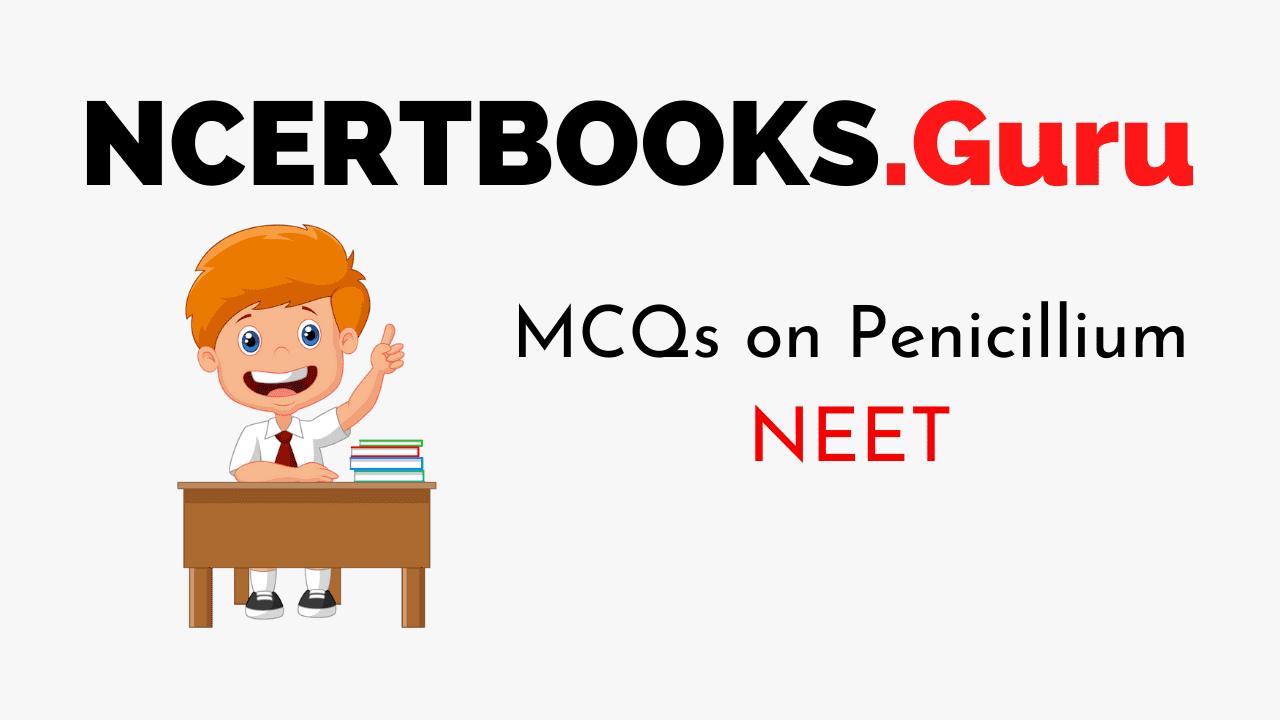NEET Biology is the scoring paper in the medical entrance examination. Here, you will discover the NEET Biology MCQ Questions for all Concepts as per the latest syllabus. Practice more on a regular basis with these NEET Biology objective questions on air pollution and improve your subject knowledge & problem-solving skills along with time management. NEET Biology Ketogenesis Multiple Choice Questions make you feel confident in answering the question in the exam & increases your scores to high.
MCQs on Ketogenesis
1. Filaments of fungi, which have thread-like appearance are called
(a) Hyphae
(b) Sporangium
(c) Conidia
(d) Mycorrhiza
Answer
Answer: (a)
2. Penicillium belongs to
(a) Deuteromycetes
(b) Phycomycetes
(c) Ascomycetes
(d) Basidiomycetes
Answer
Answer: (c)
3. Formation of dikaryon is characteristic of
(a) Phycomycetes
(b) Basidiomycetes
(c) Ascomycetes
(d) Both (b) and (c)
Answer
Answer: (d)
4. Penicillium camemberti and Penicillium roqueforti are known for
(a) causing disease to animals
(b) causing disease to plants
(c) imparting flavour to cheese
(d) none of the above
Answer
Answer: (c)
5. Penicillium is used in the production of
(a) antibiotics
(b) cheese fermentation
(c) both (a) and (b)
(d) none of the above
Answer
Answer: (c)
6. No. of ascospores formed in each ascus of Penicillium is
(a) 4
(b) 8
(c) 12
(d) 16
Answer
Answer: (b)
7. The fruiting body (ascocarp) of Penicillium is
(a) Apothecium
(b) Cleistothecium
(c) Perithecium
(d) Acrostroma
Answer
Answer: (b)
8. Which of the following is true about conidiophores of Penicillium?
(a) binucleate and colourless
(b) binucleate and pigmented
(c) multicellular and branched
(d) Uninucleate and colourless
Answer
Answer: (c)
9. Which one of the following is known as blue mould?
(a) Penicillium
(b) Rhizopus
(c) Mucor
(d) Aspergillus
Answer
Answer: (a)
10. Asexual spores produced terminally on hyphae are called
(a) Meiospores
(b) Anthospores
(c) Sporangiophores
(d) Conidia
Answer
Answer: (d)
